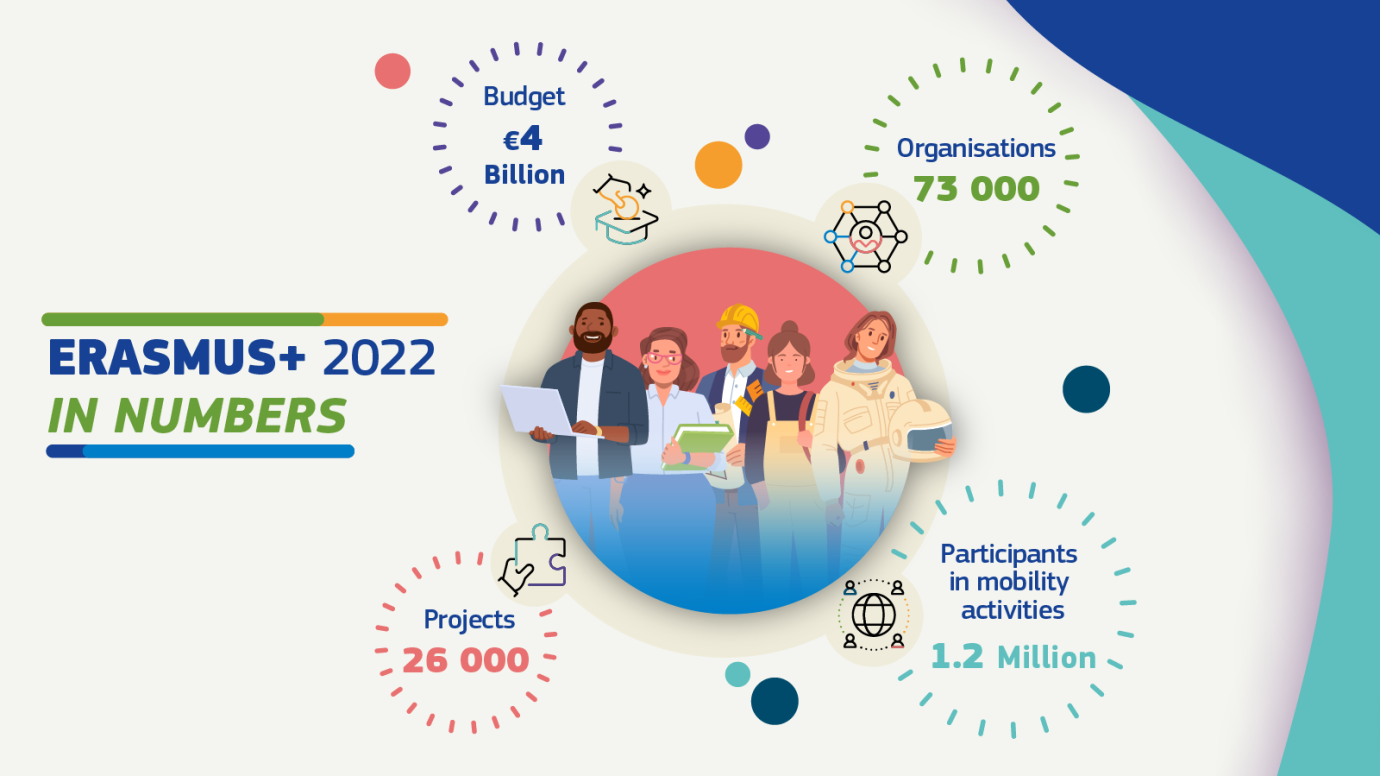Erasmus+ supported 26,000 projects and 1.2 million learning mobility opportunities in 2022, annual report shows
The latest figures show that the programme continues to grow and positively impact the lives of millions of people who participate in Europe and beyond.

The 2022 Erasmus+ Annual Report provides insights into the impact of Erasmus+ during the year. It was presented on Thursday at the 6th European Education Summit.
Headline figures
The programme delivered on its annual objectives, with high take-up and efficient use of its funds.
Its €4 billion total budget
- supported some 26,000 projects
- benefitted over 73,000 organisations
- provided learning mobility activities to more than 1.2 million students, learners, professors, teachers, trainers, youth workers and young people
More accessible for smaller organisations
Thanks to its focus on inclusion and diversity, Erasmus+ supported 134,000 people with fewer opportunities to take up a mobility activity in 2022. This includes people with disabilities and migrants, as well as EU citizens living in remote areas or facing socio-economic difficulties.
Greener and more digital
1,300 cooperation projects with a total budget of €592 million supported environment and climate change, testifying to the continuing commitment of the programme to the green transition.
Transforming education and training
Over 1,650 cooperation projects with an overall budget of €744 million addressed the digital transition. These are in line with the Digital Education Action Plan, a common vision for high-quality, inclusive and accessible digital education in Europe.
Stronger European identity
Erasmus+ also plays a pivotal role in strengthening European identity and values and in contributing to a more democratic Union. Some €340 million of the 2022 budget funded 1,200 cooperation projects supporting democratic participation.
Upcoming evaluation
The Commission is currently preparing a comprehensive evaluation of the Erasmus+ programme and will submit its Evaluation Report to the other EU institutions by the end of 2024.
The outcomes and recommendations of the evaluation will feed into the implementation of the current programme, and preparation of its successor after 2027.
It’s also running a public consultation on how well the programme has performed. Anyone can answer before 8 December.


